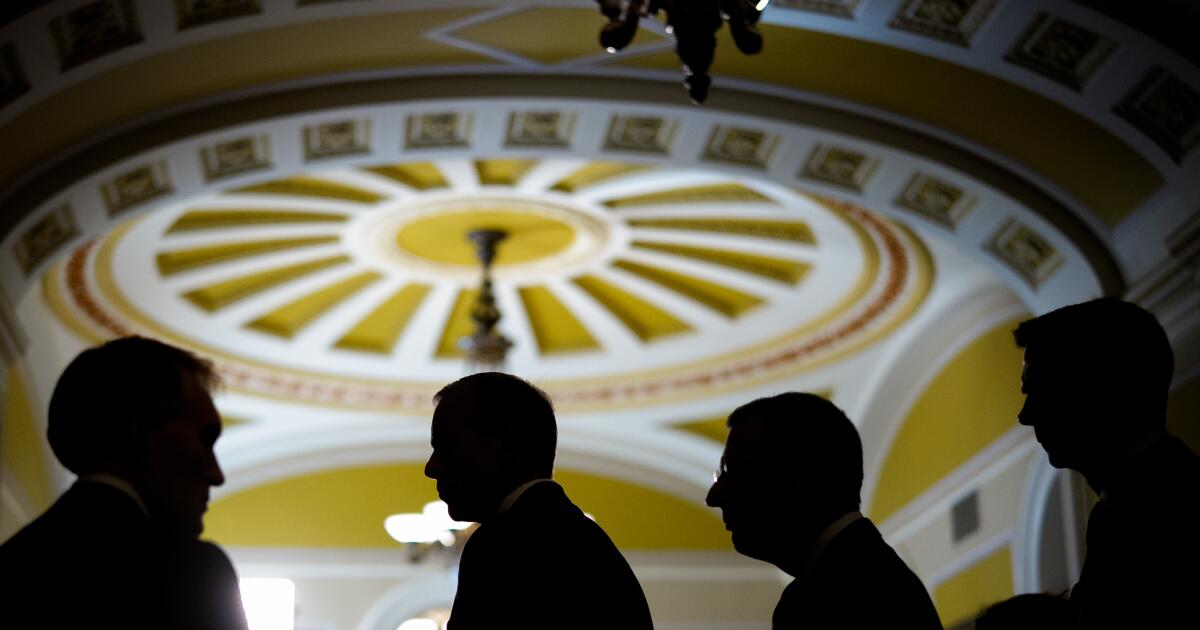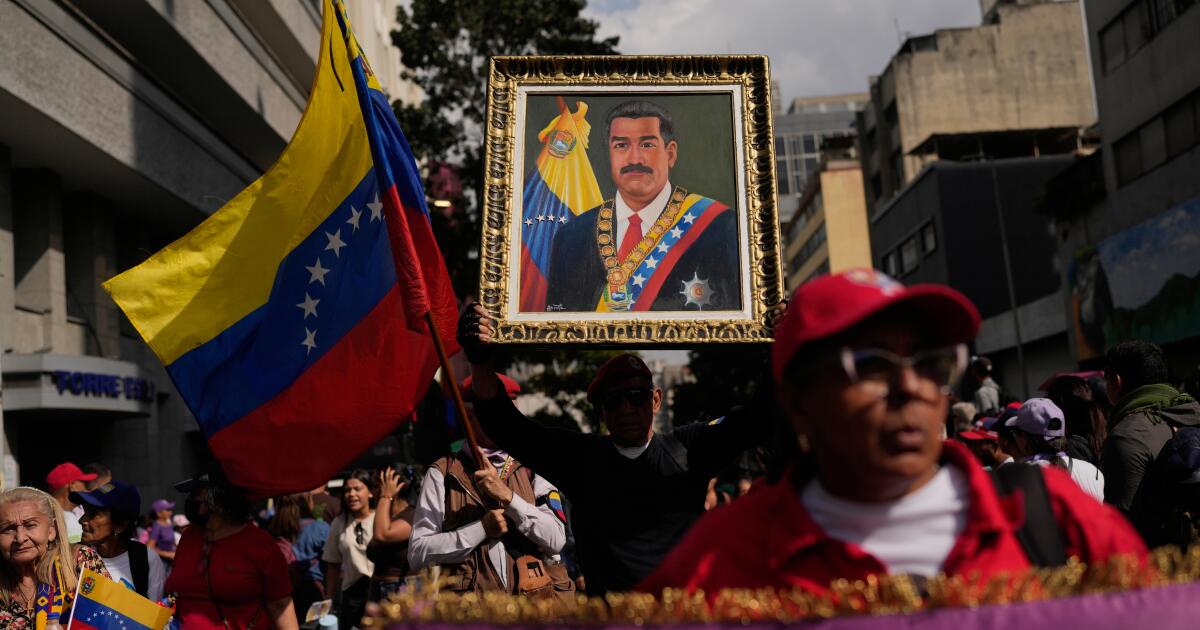GOP senators break with Trump to rein in use of military without Congress’ approval
WASHINGTON — Five Senate Republicans broke with party leaders on Thursday to advance legislation that would rein in President Trump’s use of the U.S. military in Venezuela, a move that comes as a growing number of GOP lawmakers have expressed unease about the White House’s threats to use force to acquire Greenland.
The procedural vote, which came over the objections of Republican leaders, now sets the stage for a full Senate vote next week on a measure that would block Trump from using military force “within or against Venezuela” without approval from Congress. Even with the Senate’s approval, the legislation is unlikely to become law as it is unlikely to pass the House, and President Trump — who has veto power over legislation — has publicly condemned the measure and the Republicans who supported it.
“This vote greatly hampers American Self Defense and National Security, impeding the President’s Authority as Commander in Chief,” Trump wrote in a social media post shortly after the 52-47 vote in the Senate.
The Republican defection on the issue underscores the growing concern among GOP lawmakers over the Trump administration’s foreign policy ambitions and highlights the bipartisan concern that the president is testing the limits of executive war powers — not only in Venezuela but also in Greenland, a semiautonomous territory of Denmark, a U.S. ally.
Sen. Susan Collins (R-Me.), one of the Republicans who voted for the resolution, said that while she supported the operation that led to the capture and extradition of Nicolás Maduro, she did not “support committing additional U.S. forces or entering into any long-term military involvement in Venezuela or Greenland without specific congressional authorization.”
The resolution is co-sponsored by Sens. Adam Schiff (D-Calif.), Tim Kaine (D-Va.) and Rand Paul (R-Ky.) and Senate Minority Leader Chuck Schumer (D-N.Y.). The Republicans who supported it were Sens. Collins, Paul, Lisa Murkowski of Alaska, Todd Young of Indiana and Josh Hawley of Missouri.
“Finally, the Senate is exercising its constitutional power over the authorization of the use of force to prevent America from being dragged into a new war over oil,” Schiff said in a social media post after the vote.
Vice President JD Vance told reporters at the White House on Thursday that he was not concerned about Trump losing support among Republican lawmakers in Washington, adding that passage of the resolution in the Senate would not “change anything about how we conduct foreign policy over the next couple of weeks or the next couple of months.”
But Republican support for the resolution reflects a deepening concern within the GOP over Trump’s foreign policy plans, particularly his threats to acquire Greenland — a move that prompted European leaders earlier this week to call on the United States to respect the Arctic territory’s sovereignty
House Speaker Mike Johnson (R-La.) told reporters on Wednesday that he does not believe “anybody’s seriously considering” using the military to take control of Greenland.
“In Congress, we’re certainly not,” Johnson said.
Senate Majority Leader John Thune (R-S.D.) struck a similar tone the same day, telling reporters that he does not “see military action being an option” in Greenland.
Other Republican lawmakers have been more openly critical, warning that even floating the idea of using force against a member of the North Atlantic Treaty Organization, a defense alliance that includes the United States, risks weakening America’s position on the world stage.
“Threats and intimidation by U.S. officials over American ownership of Greenland are as unseemly as they are counterproductive,” Sen. Mitch McConnell (R-Ky.) said in a statement. “And the use of force to seize the sovereign democratic territory of one of America’s most loyal and capable allies would be an especially catastrophic act of strategic self-harm to America and its global influence.”
In a statement Tuesday, the White House said acquiring Greenland was a “national security priority” and that using the military to achieve that goal was “always an option.” A day earlier, Stephen Miller, Trump’s deputy chief of staff for policy, told CNN that “Greenland should be part of the United States.”
“Nobody is going to fight the United States militarily over the future of Greenland,” Miller said.
Miller’s remarks angered Republican senators, including Sen. John Kennedy (R-La.) who in an interview with CNN on Wednesday called the idea of invading Greenland “weapons-grade stupid.”
Sen. Thom Tillis (R-N.C), who has served as the top Republicans on the Senate NATO Observer Group since 2018, criticized the idea as well in a searing Senate floor speech.
“I’m sick of stupid,” Tillis said. “I want good advice for this president, because I want this president to have a good legacy. And this nonsense on what’s going on with Greenland is a distraction from the good work he’s doing, and the amateurs who said it was a good idea should lose their jobs.”
Tillis, who is not seeking reelection this year, later told CNN that Miller needs to “get into a lane where he knows what he’s talking about or get out of this job.”


